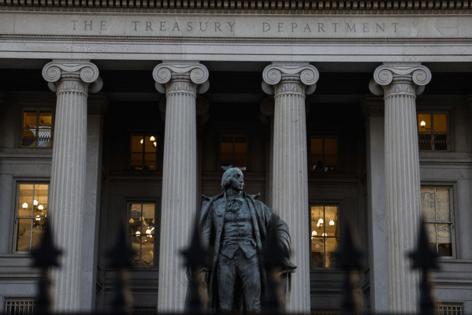What would Hamilton say about Trump and today's America?
Published in Political News
Recently, my living room transformed into a Broadway stage. With my wife, kids, and I singing along to the Hamilton soundtrack, conversations inevitably spiraled from lyrics about revolution and ambition into discussions about today’s news.
My daughter, home from summer camp and sporting a growing curiosity about history, became my sounding board as we talked about government, justice, and the state of American politics. After a family debate about the latest Trump executive order, I asked the kids, “What do you think Hamilton would say if he were alive today?” Their answers were both honest and hopeful, and ultimately inspired this essay.
If Alexander Hamilton were to return and take stock of the United States in 2025, I believe he would recognize a nation that has delivered on some founding hopes but has dangerously betrayed others. The framework he helped construct—designed to check tyranny, balance competing interests, and elevate national unity—is still standing. But the forces he feared most—demagoguery, factionalism, and civic apathy—have gained alarming momentum.
As Ron Chernow’s Pulitzer Prize-winning biography shows, more than any other Founder, Hamilton understood the fragility of republics. In Federalist No. 1, Hamilton warned of men who would “commence demagogues and end tyrants”—those who exploit public trust to seize power. These were not hypothetical fears; they were urgent warnings aimed at a future generation. Today, centuries later, the country is still struggling with leaders who place personal ambition above principle, who stoke division to consolidate power, and who test the limits of law and accountability.
By Hamilton’s standards, Donald Trump is not simply a controversial president or a populist showman, but a stress test for the American republic itself. Trump’s open disdain for the judiciary, flirtation with authoritarian rhetoric, and persistent efforts to delegitimize democratic institutions are, as historian Richard Brookhiser observes, precisely the kind of executive abuse Hamilton worked desperately to prevent.
Yet, as troubling as Trump’s conduct may be, the real challenge—as Chernow and Brookhiser have shown—lies not in any one person but in the deeper erosion of civic trust and constitutional knowledge. Hamilton would not be surprised by the rise of a charismatic demagogue; what would truly shock him is how readily our carefully constructed system has yielded to the pressures of partisanship.
Hamilton believed in a strong executive, yes—but one constrained by law, reason, and duty. He insisted the presidency be subject to oversight, never above the courts, Congress, or the Constitution itself. Power, Hamilton believed, was a force for good only if wielded responsibly and for the public benefit. As Chernow explains, Hamilton’s greatest contribution was the idea that unchecked executive power is a recipe for tyranny.
What might disturb him even more is the dysfunction of Congress and the widespread public cynicism about justice. In Federalist No. 78, Hamilton described the judiciary as the “least dangerous branch,” reliant not on force, but on public confidence and judgment. Today, when judicial rulings are dismissed as partisan and judges are harassed, Hamilton’s warnings feel especially urgent. He would see this not as a vigorous democratic debate, but as the unraveling of the rule of law.
If Hamilton were among us now, I imagine he would write—furiously—and strive to build coalitions of citizens determined to defend the Constitution. As Brookhiser has noted, republics die not only by coup or invasion, but by the slow corrosion of norms and the triumph of tribal loyalty over national unity.
Hamilton would challenge leaders to rise to their oaths, not shrink from them. He would implore lawyers, legislators, educators, judges, and regular citizens—including parents and children like us, wrestling with these questions around the kitchen table—to take seriously the responsibilities of self-government.
Chernow argues, and I agree, that the true moral ambition of our founding was not to hoard power, but to distribute it wisely. Hamilton understood that written documents and legal framework cannot preserve a republic without leaders who practice restraint, citizens who value truth, and institutions that prize law over loyalty and principle over popularity. The real test of a constitutional system is not how it handles stability and peace, but in moments when spectacle and bitterness threaten to replace reason and law.
For families like mine, discussing Hamilton’s legacy is more than a history lesson or a Broadway sing-along. It’s about grappling with what it means to be engaged, to ask hard questions, and to demand that our institutions serve the public good. As my daughter observed, the strength of a republic depends on citizens who care, not just about winning, but about doing what is right.
Today, we face the same choice Hamilton understood so well: Will we be ruled by laws or by personalities, by reason or by resentment, by a Constitution or by spectacle? Hamilton’s legacy is a warning and a challenge. History will remember which path we take.
Let it remember that we chose the republic.
____
Dr. David Lopez-Herrera teaches in San Antonio and writes about criminal justice, law, politics, and civic engagement.
_____
©2025 The Fulcrum. Visit at thefulcrum.us. Distributed by Tribune Content Agency, LLC.

























































Comments